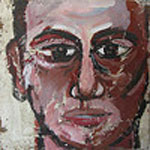read this interesting post by Rami Zurayk
Lebanon, unfortunately, needs little introduction. The country's unending wars has been heavily mediatized, to such an extent that the mere mention of the word "Lebanon" appears to elicit dramatic images of war, violence and destruction. Many of those I have met at this forum have told me, with a lot of empathy: "poor Lebanon".
A very appropriate description, because Lebanon is indeed a poor country.
According to a recent UNDP study, up to 40% of the Lebanese can be categorized as poor, with around 18% living in absolute poverty. Economic inequality is severe, especially in terms of access to resources: the GINI for land distribution is 68%, one of the highest in the world. 50% of the farmland is owned by just 3.5% of the farmers, usually absentee landlords uninterested in farming. About 10% of the people are rural, but in the poor districts like the Akkar in the north of the country, this can climb up to 70%. Poverty is mainly rural. Agriculture's share of the GNP is 6-8% but it is allocated less than 1% of the national budget, for reasons I will not go into right now.
Lebanon imports 80% of what it eats, mostly from the US and the EU. We are self sufficient in fruits and vegetables and in poultry, but we import nearly all the poultry feed, which places "self sufficiency" in a different context. Lebanon is one of the centers of origin of wheat, but it imports 80% of the wheat it consumes.
click here to continue reading the post
Lebanon, unfortunately, needs little introduction. The country's unending wars has been heavily mediatized, to such an extent that the mere mention of the word "Lebanon" appears to elicit dramatic images of war, violence and destruction. Many of those I have met at this forum have told me, with a lot of empathy: "poor Lebanon".
A very appropriate description, because Lebanon is indeed a poor country.
According to a recent UNDP study, up to 40% of the Lebanese can be categorized as poor, with around 18% living in absolute poverty. Economic inequality is severe, especially in terms of access to resources: the GINI for land distribution is 68%, one of the highest in the world. 50% of the farmland is owned by just 3.5% of the farmers, usually absentee landlords uninterested in farming. About 10% of the people are rural, but in the poor districts like the Akkar in the north of the country, this can climb up to 70%. Poverty is mainly rural. Agriculture's share of the GNP is 6-8% but it is allocated less than 1% of the national budget, for reasons I will not go into right now.
Lebanon imports 80% of what it eats, mostly from the US and the EU. We are self sufficient in fruits and vegetables and in poultry, but we import nearly all the poultry feed, which places "self sufficiency" in a different context. Lebanon is one of the centers of origin of wheat, but it imports 80% of the wheat it consumes.
click here to continue reading the post
0 comments:
Subscribe to:
Post Comments (Atom)
















